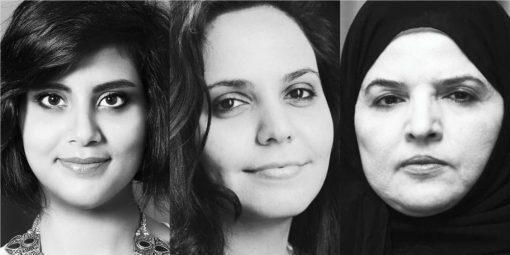The recent lifting of the ban on driving by women in Saudi Arabia was undoubtedly an occasion to celebrate for many but it also brought to the fore the situation of those activists who are in detention for campaigning for women’s rights. A massive publicity machine around the world has sought to portray Crown Prince Mohammad bin Salman (MBS) as the protagonist of the decision to lift the ban. Yet it is also under his watch that the activists who campaigned for this decision were arrested. The authorities accused them of being in contact with foreign actors and the media termed them traitors. At least three activists – Loujain al-Hathloul, Iman al-Nafjan and Aziza al-Youssef – continue to be in detention.
Since May, dozen of activists, mostly women, have been arrested by the Saudi establishment over serious charges. United Nations Human Rights spokeswoman, Liz Throssell termed such arrests as “perplexing”. According to her, four of the women though were reported to have been subsequently released. “But the allegations against the six women and four men known to have been taken into custody appear to be serious which could lead to draconian sentences. We urge the Saudi Arabian authorities to reveal their locations and ensure their right to due process [is] guaranteed.” she said in a speech.
Loujain, a 28-year-old activist, has been jailed several times by the Saudi authorities for defying the driving ban and campaigning against the male guardianship law. Saudi authorities charged her with attempting to destabilize the kingdom. A smear campaign was launched against her in the social media branding her as ‘traitor’.
In statement, Samah Hadid, Amnesty International’s Middle East Director of Campaigns, said that “this chilling smear campaign is an extremely worrying development for women human rights defenders and activists in Saudi Arabia. Such blatant intimidation tactics are entirely unjustifiable.”
Iman al-Nafijan, a university professor and women’s rights activist, started and ran the blog ‘Saudi Women’, where she not only covered the driving ban on women but also issues related to women’s rights, local elections, Saudi Arabia’s anti-terror laws and the work of human rights activists.
Aziza al-Yousef, a retired King Saud university professor and mother of five children, was one of the lead campaigners against the Saudi male guardianship laws that stipulated that Saudi women need to seek permission from their male relatives to travel, attend universities or get medical treatment.
Amnesty International, in a report, has pointed out that the country’s 2014 counter-terror law and its follow-up decrees over these years had been used “to curb human rights defenders including activists on vague and overly broad charges for their peaceful activism”. The rights group added that the “Specialized Criminal Court has sentenced several human rights defenders to up to 15 years in prison in blatantly unfair trials”.
Crown Prince Mohammad bin Salman has on many occasions talked of reforms that will be implemented in the country as part the modernization project. But according to right groups, including Amnesty International, “women and girls continued to face discrimination in law and practice, despite the government’s promised reforms.”
“Women were required to have permission from a male guardian their father, husband, brother or son to enrol in higher education, seek employment, travel or marry. They also remained inadequately protected against sexual and other forms of violence,” the report added.
Celebrations of the lifting of the ban on Sunday were accompanied by calls to continue the struggle to get the activists released. “We shouldn’t forget [that] the people who fought for lifting this ban are in jail,” Manan al-Sharif, an activist who is planning to launch global campaign #Miles4Freedom to press authorities for their release, said.
First published in Newsclick.





